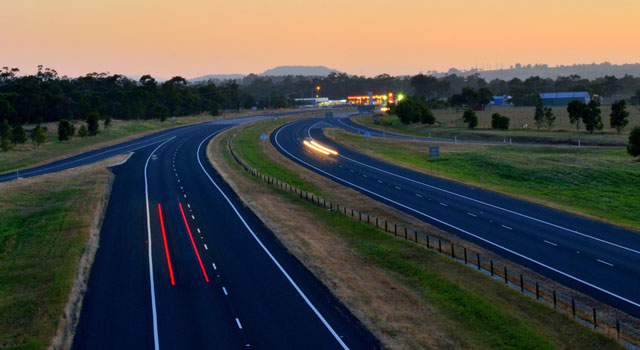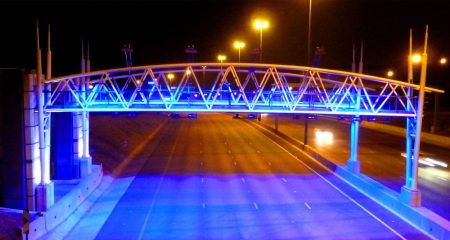
E-tolling of Gauteng’s highways will begin on 3 December, transport minister Dipuo Peters said on Wednesday.
“Sanral should be allowed to start collecting toll fees in order to begin to repay the debt incurred when the roads were upgraded,” she told reporters in Pretoria. “We cannot afford to continue to expose Sanral’s portfolio to any further financial risks.”
Motorists without e-tags would pay double the amount and would not benefit from discounts, she said.
Peters said systems were in place to ensure the system functioned and Sanral, the national roads agency, was capable of this responsibility.
Electronic tolling would contribute to the fight against licence plate cloning and would reduce congestion, she said.
Sanral CEO Nazir Alli said a debt collection process had been started and motorists would receive a bill every seven days. If they repeatedly failed to pay, a summons would be sent. He said people were under the impression that government vehicles were exempt from e-tolling. “Government-owned vehicles are not exempted,” he said.
Peters said since the first phase of the project had been completed, Gauteng motorists had enjoyed the convenience of driving on world-class highways. “The roads are truly magnificent.”
She said three-lane roads were expanded to five and six lanes.
A “high-tech” travel demand system was introduced to ensure constant monitoring of traffic on the e-tolled road network. “The system ensures that officials manning traffic flows from the operations centre in Samrand are able to pick up incidents such as car breakdowns and crashes as and when they occur,” she said.
Sanral had introduced the “golden hour” service where emergency vehicles located at various spots on the highways were ready to respond to incidents. “This assists in preventing traffic jams and secondary crashes.”
Peters said Sanral had to approach the markets to raise at least R20bn to implement the upgrades. “This was due to the inadequacy of resources to respond to what was becoming a ticking time bomb waiting to explode,” she said. “The ever-growing congestion on the highways was reaching crisis proportions.”
Business had expressed concerns about the impact on business. “We have learnt many lessons from this project, one of them being that it will take some time to reverse the legacy of colonialism and apartheid planning,” said Peters.
“Apartheid spatial planning never envisaged a situation where Gauteng would be as populated as it is today, mainly due to the influx of people from different provinces for economic reasons.”
She said government had made several concessions to minimise the financial burden on the e-tolled road network. — Sapa




